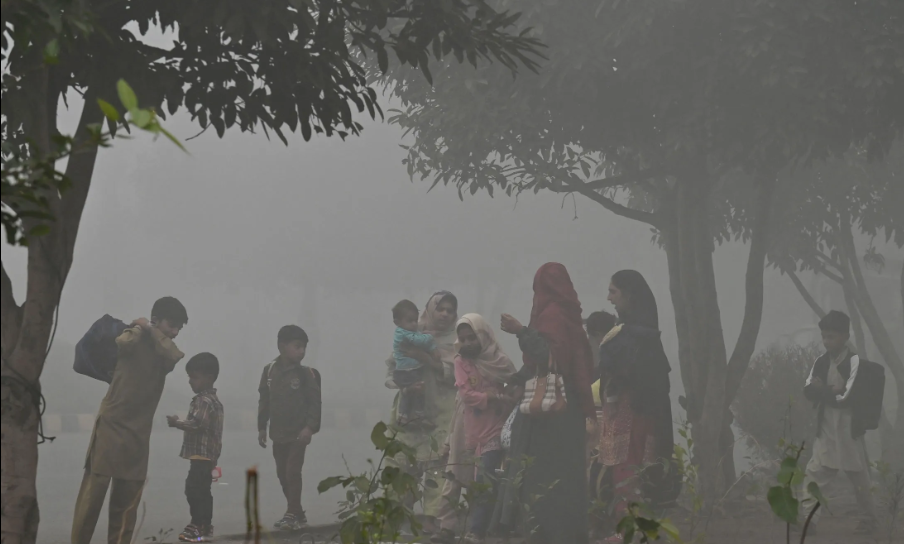 The government of Pakistan’s most polluted province has launched a new policy to address a protracted smog crisis, after the world’s worst air shuttered schools and saw 900 people seek hospital treatment in a single day.
The government of Pakistan’s most polluted province has launched a new policy to address a protracted smog crisis, after the world’s worst air shuttered schools and saw 900 people seek hospital treatment in a single day.
Punjab has introduced a 10-year policy to reduce emissions from various sectors in a phased manner, Senior Provincial Minister Marriyum Aurangzeb said in a post on X. The measures include starting the nation’s first vehicle certification scheme, fuel quality checks and distributing new farming machinery to prevent crop residue burning.
Pakistan and North India suffer from a chronic air pollution crisis that worsens during colder months. Last week, more than 900 people were admitted to the hospital in a single day in Punjab’s capital Lahore. In New Delhi, a survey found that nearly half of the respondents’ families have sought medical help for respiratory problems in the past three weeks.
On Wednesday morning, sensors managed by the Swiss monitor IQAir recorded an air quality index of 447 in Lahore, well beyond the level of 50 that’s deemed safe. The Pakistani city was the world’s most polluted for most of November, forcing the local government to close schools among other measures.
This is nothing new and a similar plan was presented last year as well, said Dawar Butt, co-director at the Pakistan Air Quality Initiative. “There are no benchmarks and no costing has been done on how to achieve this.
The group also wrote a letter to the Prime Minister Shehbaz Sharif this week outlining three solutions which would lead to a cumulative 45% emissions reduction. They called for an immediate shut down of all brick kilns, polluting industries and a crackdown on vehicles that fail to meet emission standards.

